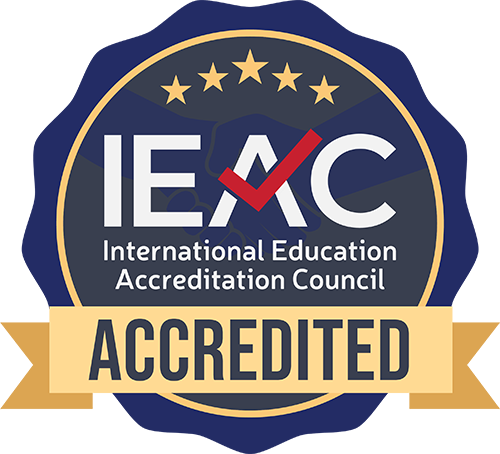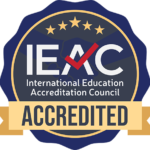Doctor of Philosophy (PhD) In Ancient Philosophy
Introduction
- Passionate about studying the birth of civilisation?
- Interested in how Plato thought?
- Understand Aristotle?
- Want to illustrate your intellect in a terminal qualification?
Why not pursue your thirst for knowledge and wisdom with the Warnborough PhD in Ancient Philosophy? Enrol today!
Key Info
Duration:
3 Years minimum ^
Credits:
160 ECTS credits
Fees:
€18,000 *
Start:
Monthly
Prerequisites:
Master’s degree; or equivalent.

The study of ancient philosophy has more than mere academic interest, for the ancient thinkers set themselves the task of securing for their students ‘the good life’, that is, the capacity to live as well as one may in ways that are appropriate for rational and conscientious beings.
The student on this program is therefore encouraged to appreciate in a significant sense what it means to be a philosopher (a ‘lover of wisdom’) and how living the ‘philosophic life’ contributes to one’s well-being and to the development of one’s humanity.
This program has several related aims:
- to introduce candidates to how the key ancient thinkers addressed the question of how human beings should secure the ‘good life’ and how to ‘live well’.
- to develop an understanding of important concepts required for this endeavour, including ‘good’, ‘pleasure’, ‘happiness’, ‘desire’, and ‘virtue’.
- to introduce to the candidate important texts written by the great thinkers of the period, namely: Plato, Aristotle, Epicurus and Epictetus.
- to develop the necessary reasoning and analytical skills for accomplishing this.
The graduate program in Ancient Philosophy is suitable for students who intend to develop professional careers in a wide range of settings.
The rigorous intellectual training that philosophy provides has value and appeal to employers in areas such as:
teaching (most likely at the college level), course development and curricula design, research, civil service, local government, charities, information technology, solicitor’s firms, publishing and journalism.
Students can work with their mentor to create new modules and expand current modules into customised programs, suited to their interests and capabilities. Read the complete module descriptions for information as well as ideas – think of them as a set of guidelines, rather than rules. They will also give you ideas on areas you may wish to pursue most aggressively, in your graduate program.
160 ECTS credits, including a Doctoral Thesis, will be required for the PhD degree. In accordance with Warnborough College regulations, PhD candidates in Ancient Philosophy will need to fulfil the following requirements:
Part One: Survey Of The Primary Sources (10 Credits Each)
PH700: Good, Pleasure and Happiness
What is required for living well? What should we pursue as our ultimate end, our final good? What is eudaimonia (‘happiness’ or ‘flourishing’), and how may we secure it? How does pleasure relate to happiness, and what contributes to pleasure? How do the virtues contribute to one’s happiness? How do the ‘goods of fortune’ contribute to our happiness? How should we face death and evil?
PH710: Knowledge and Desire in Virtue
What are the virtues, and how do they contribute to our well-being? The four cardinal virtues of wisdom, bravery, temperance, and justice. The notion of virtue as a special skill, or craft. How what we desire relates to what we believe is good and bad. Rational and non-rational desires. Plato’s division of the soul. Aristotle’s notion of virtue as a mean. Weakness of will.
PH720: The Good of Others
Justice and our concern for the good of others. How do we benefit from being just? Morality, justice, and self-interest. Justice as a virtue. Friendship. Epicurus on virtue and justice.
PH730: Virtue and happiness
The Stoic notion that virtue is sufficient for happiness. Why the virtuous person can suffer no harm. What counts as benefiting from our goods? Aristotle on the life of virtue. Epicurus and the notion that our happiness must be in our control and independent of external circumstances. Are external goods necessary for happiness? The Stoic notion of living a life in accord with nature. Rational agents, rational choice and the notion of directing our desires rationally. Happiness identified with the life of virtuous action. The Stoic notions of freedom from emotion and the distinction between what is really good and what is merely preferred.
Part Two: Key Philosophers (16 credits each)
Proceeding from the survey conducted in Part One, in this Part of the program students will chose to study in depth the texts of four of the following key contributors to ancient philosophy.
PH815: Plato
Students taking this Module will study several of Plato’s early dialogues, including the Apology of Socrates. Socrates on virtue and ‘excellence of character’, and his notion of philosophy as ‘care of the soul’. What is the ‘Socratic Method’ of teaching? ‘Socratic irony’. What is good, and what is happiness? Socrates on hedonism. Is virtue sufficient for happiness? Virtue as a craft. Socrates on justice.
PH818: Aristotle
Students taking this Module will study Aristotle’s work, Nicomachean Ethics. The nature of eudaimonia (‘happiness’). What is moral virtue (excellence of character), and how is it acquired? Aristotle’s notion of human function, and his ‘doctrine of the mean’. Voluntary, involuntary and non-voluntary actions. How is intemperance different from incontinence? Aristotle on friendship and contemplation.
PH838: The Philosophy of Epicurus
Students taking this Module will study the extant texts of Epicurus and other Epicurean texts and sources for Epicureanism. Hedonism and the notion that pleasure is the good and constitutive of eudaimonia (‘happiness’). Epicurean philosophy and its aim to free us from fear and anxiety (especially from the fear of death). Ataraxia (tranquillity). Epicurus on desire, how to limit desire, and the notion of ‘natural limits’ to desire
PH841: The Philosophy of the Stoic Epictetus
Students taking this Module will study Epictetus’ Handbook as well as examine a range of Stoic extracts. How, according to the Stoics, do we secure eudaimonia (‘happiness’)? The Stoic notion of the good. Epictetus on what is ‘in our power’ and ‘making correct use of impressions’. What is truly desirable? Stoics on extirpating ‘the passions’. The role of God in Epictetus’ philosophy. The Stoic notion of ‘living in accord with nature’. Facing adversity as a Stoic.
The Process:
- Students acquire knowledge studying from generalised specific areas to special problems, issues and topics
- Students utilise their skills in critical and analytical thinking to identify potential areas of interest that will contribute to new knowledge
- Students utilise their research skills through supported, self-directed investigations to explore these areas of interest, and to develop methodological approaches
- Students demonstrate their ability to identify new and existing relationships and links to their subject matter, through these combined processes
Doctoral Thesis
Students will work with their mentor to establish the parameters for their independent research, the findings and conclusions of which will be the subject of their thesis. The Doctoral Thesis will be completed according to the guidelines and parameters set by Warnborough College.
Upon satisfactory completion of all requirements, students will receive the Doctor of Philosophy in Ancient Philosophy degree. There are no other exit points in the program. Students will receive credit for modules they have successfully completed.
This program is offered via distance learning. Individual programs can be structured in modular formats; can be project/research directed, or can combine both options. At the graduate level, students are expected to be highly self-motivated and capable of independent work.
Students may be exempt from certain modules in the curriculum, based on prior courses taken, and/or demonstrated knowledge of philosophy and related disciplines. Modules taken at any time during the student’s career may be counted, if they fulfil appropriate requirements.
Because of the enormous flexibility of the WCI program, students may work with their mentor to structure their program in the context of their individual interests, and professional and academic goals.
Program Director: Dr Mark Cole
Dr. Mark Cole is a transactional attorney, general counsel and insurance specialist with 25 years’ experience. Dr. Cole is also a Warnborough doctoral graduate in the history of ideas. He has law degrees from Notre Dame Law School (J.D., cum laude) and the University of Houston (LL.M. in international economic law) and an MBA from Western Governors University.
He began his career at a large international law firm, and then became general counsel to a small company. He has worked on the development of energy and transportation infrastructure assets and directed the company’s insurance program, and worked on financings, acquisitions and divestments, leases, private equity raises and the IPO of the company. He also advises the company on day-to-day matters including employment law/human resources, immigration, entity management and growth and governance. Dr. Cole also served as an elected member and chairman of his county’s hospital district, where he helped set and control a budget of more than $50 million, and worked on infrastructure development, asset management, personnel issues and benefits, long-term planning, executive hiring and evaluation. Dr. Cole has also served on the board of many charitable organizations and ministries.
He began his education at Baylor University (BA English/political science), and went on to receive a MAR from Yale Divinity School, and study philosophy and theology at Trinity College, Dublin. He also has a ThM from Whitefield Theological Seminary. He maintains a deep and active interest in moral philosophy, jurisprudence, applied and professional ethics, philosophical theology, literature, and the history of ideas. He is a member of the State Bar of Texas, a Fellow of the Texas Bar Foundation, and holds the Energy Risk and Management Liability Insurance Specialist certifications from the International Risk Management Institute.
* Fees:
Fees refer to tuition only. It does not include ancillary expenses such as required materials (see above), textbooks, internet connections, postage, telephone calls, insurance and printing. More…
^ Duration:
Depending upon exemptions, performance and the workload, it may take more or less time. Accreditation for Prior Learning or Experience (APEL) can reduce time and fees.


